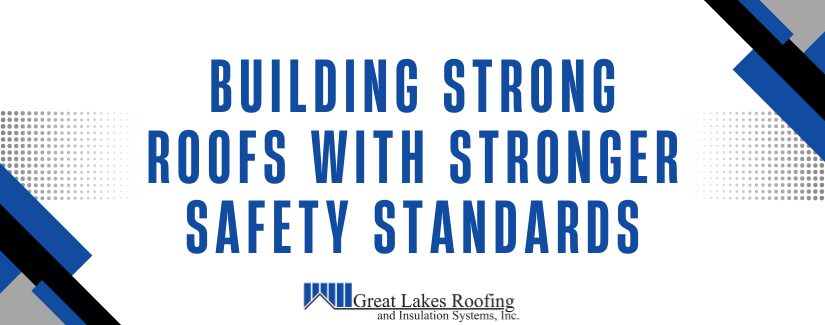Roofing safety is paramount to ensure the well-being of workers and the structural integrity of a building. In Michigan, roof safety regulations are set in place to protect roofing professionals and prevent accidents. In this blog, we will discuss the key roof safety regulations in Michigan, their importance, and how Great Lakes Roofing adheres to these standards to maintain a safe work environment.
Why Roofing Safety Regulations Matter in Michigan
Roofing can be a dangerous profession, with workers exposed to various risks such as falls, equipment malfunctions, and hazardous weather conditions. The state of Michigan has specific guidelines in place to mitigate these risks, focusing on:
- Worker Protection: Ensuring the health and safety of roofers on job sites.
- Accident Prevention: Reducing the risk of falls and other accidents.
- Building Standards: Ensuring that structures comply with local safety codes.
By adhering to roof safety regulations in Michigan, roofing companies like Great Lakes Roofing can provide a safe and secure environment for our employees and clients.
Key Roof Safety Regulations in Michigan
Michigan’s safety standards for roofing work are governed by both state laws and federal OSHA (Occupational Safety and Health Administration) regulations. Here are the main roof safety regulations in Michigan every roofing company must follow:
- Fall Protection
The leading cause of injury and death in the roofing industry is falls. To prevent these accidents, Michigan requires:
- Guardrails and fall arrest systems for workers working at heights of 6 feet or higher.
- Personal fall arrest systems (PFAS), including harnesses, lanyards, and anchor points.
- Safe access methods such as ladders and scaffolding.
- Roofing Equipment Safety
The proper use and maintenance of roofing equipment are critical for preventing accidents. Key safety rules include:
- Inspecting tools and equipment regularly for damage or wear.
- Training workers on the correct use of equipment such as ladders, scaffolds, and power tools.
- Proper storage of tools to avoid hazards.
- Weather Considerations
Michigan’s weather can present unique challenges for roofing. Roofing work is prohibited under certain weather conditions:
- High winds or heavy rain can create dangerous conditions.
- Winter roofing may require additional precautions to address ice, snow, and low temperatures.
- Training and Certifications
All roofers must undergo proper training to understand the safety regulations and protocols. This includes:
- OSHA-certified courses to ensure all workers are trained in fall protection, equipment use, and emergency procedures.
- Regular safety drills to prepare for unexpected incidents.
How Great Lakes Roofing Ensures Safety on Every Job Site
At Great Lakes Roofing, safety is at the forefront of every roofing project. We take the following steps to ensure our team operates safely:
- Compliance with Michigan’s roofing safety regulations.
- Providing fall protection such as harnesses and guardrails.
- Continuous safety training to keep up with industry best practices and regulatory changes.
- Rigorous site inspections to ensure every roofing project meets or exceeds Michigan’s safety standards.
By following roof safety regulations in Michigan, Great Lakes Roofing creates a work environment where safety and quality are guaranteed.
Conclusion
Roof safety regulations in Michigan play a crucial role in protecting workers and ensuring safe roofing practices. Adhering to these guidelines is not only a legal requirement but also a moral responsibility. At Great Lakes Roofing, we prioritize the safety of our workers and clients, maintaining a commitment to industry-leading standards.
For reliable and safe roofing services in Michigan, trust Great Lakes Roofing to handle your next project with professionalism and care. Contact us today to schedule a consultation or request a quote.

